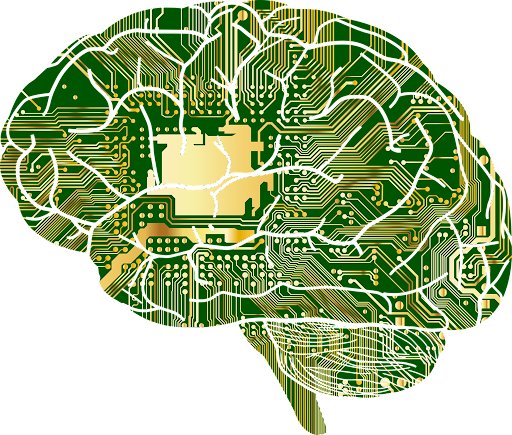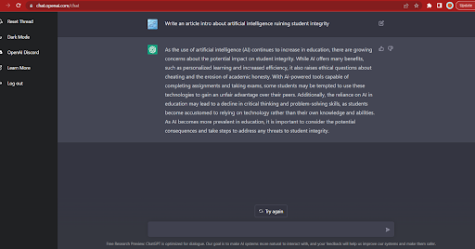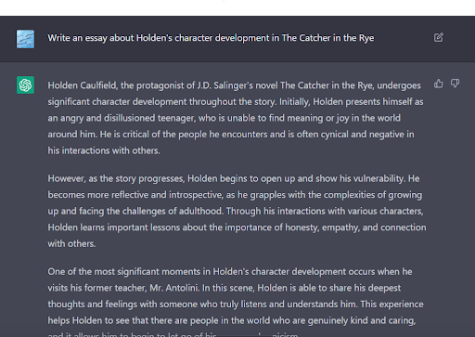Growing concern over use of artificial intelligence to cheat

Advances in AI are making it easier for students to cheat.
December 9, 2022
As the use of artificial intelligence (AI) continues to increase in education, there are growing concerns about the potential impact on student integrity.
While AI offers many benefits, such as personalized learning and increased efficiency, it also raises ethical questions about cheating and the erosion of academic honesty. With AI-powered tools capable of completing assignments and taking exams, some students may be tempted to use these technologies to gain an unfair advantage over their peers.
Additionally, the reliance on AI in education may lead to a decline in critical thinking and problem-solving skills, as students become accustomed to relying on technology rather than their own knowledge and abilities.
 Everything you just read was produced in 15 seconds by a single command from the new artificial intelligence program ChatGTP. This technology is so advanced that with one simple input sentence, it was able to write the entire introduction to this article.
Everything you just read was produced in 15 seconds by a single command from the new artificial intelligence program ChatGTP. This technology is so advanced that with one simple input sentence, it was able to write the entire introduction to this article.
AI’s like ChatGPT sift through online databases to produce a distinct output, almost like a collage composed of available information from the internet. There are significant academic consequences of these new artificial intelligence programs on student integrity. Along with all the very compelling reasons the AI was able to come up with in a matter of seconds, the most concerning fact is that each piece of content produced by the AI is unique.
No two responses from ChatGTP will ever be the same, and it can take simple commands like “make it longer” or “make it more sophisticated” if students aren’t satisfied with its output. They can also simply press “Try Again” if they don’t like what is produced or want an output with different word choices. Students now have the power to generate an entire book report, then perform a few simple edits and create a piece of media almost unrecognizable to plagiarism detectors like TurnItIn.com.
ChatGTP has the power to write college essays, generate student news articles, answer free response test questions, and even compose songs. It can even produce its own program in any coding language given a prompt, a major concern for the integrity of computer science classes.
Here is another example of the power of this program. Sophomores at LFHS typically read The Catcher in the Rye and write an essay on it for their final paper. Given the prompt “Write an essay about Holden’s character development in The Catcher in the Rye,” ChatGTP was able to produce this:

The essay then describes accurate plot points and their impact on Holden’s character from just one sentence of input. A notable aspect of the AI’s output was that it was able to produce very specific pieces of information, such as supporting character’s full names, underlying themes of the novel, and sophisticated diction like “disillusioned” and “introspective.”
The technology is completely free and accessible to anyone, meaning students may no longer be compelled to even read the books in the first place if artificial intelligence can simply give them the analysis they need to receive a high essay grade.
Kristen Carlson, the Instructional Director for the LFHS English Department, said students using artificial intelligence to produce work has been the talk of the office. This problem has already shown up in a few English classes, and the Technology Department has been notified to try and find ways to deter students from using it.
The teachers were able to identify its use because the language of the work students had previously produced in class didn’t match the sophistication, complexity, and style of work of the AI.
“There will always be shortcuts for students to take, and the short cuts will always be enticing. I don’t know if educators can keep up with it,” said Carlson. “Shortcuts are easy because you don’t have to put in the time and brainspace, but the shortcut isn’t worth losing your academic integrity. It is better to put something forward that isn’t your best writing or thinking rather than something that a corporation produces.”
The way an artificial intelligence becomes this strong is by “learning” from repeated use and user feedback. As more people take advantage of these programs, they are only going to become better at their job. In less than a week, ChatGTP has reached nearly 1 million users.
For context, it took Netflix over three years to achieve 1 million users. ChatGTP is drastically improving as its use increases exponentially. This means it is only going to become more difficult to tell whether something was plagiarized from it. This technology has the power to completely change education as the true source of essays, FRQ’s, and students’ opinions are becoming increasingly uncertain.






